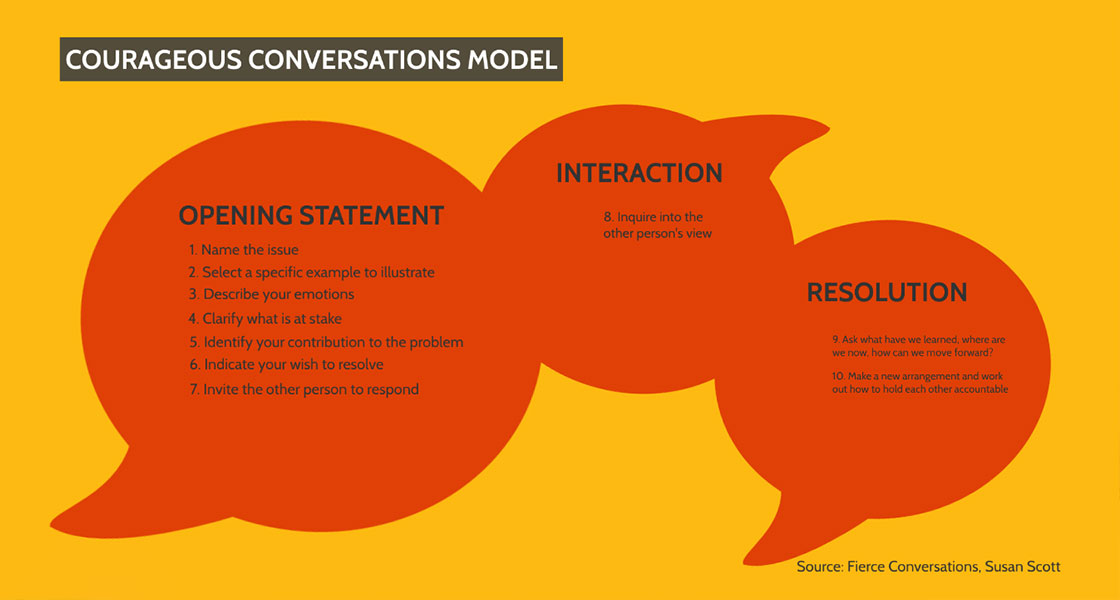Having difficult conversations with your team

Have you ever found yourself putting off a tough conversation with someone in your team — hoping the issue might just work itself out?
You’re not alone. Many leaders share this quiet dread. The moment feels heavy, the words feel loaded, and the stakes feel high.
But here’s the truth: avoiding these conversations doesn’t make the tension go away — it simply pushes it beneath the surface, where it quietly undermines trust, accountability, and team morale.
As Susan Scott writes in Fierce Conversations, “The conversation is the relationship.” If we’re not speaking honestly and bravely, especially when it’s uncomfortable, we’re limiting not just our team’s potential — but our own as leaders.
Let’s reframe what it means to have a “difficult” conversation. What if we viewed it instead as a clear and respectful commitment to the
growth of our team — and to the values that matter most?
Why These Conversations Matter?
As a leader, your actions — and inactions — shape the culture of your business. When issues are left unaddressed, they don’t stay isolated. They ripple outward, impacting the energy, engagement, and cohesion of the whole team.
It might feel easier in the moment to let things slide, but here’s what that communicates to your team:
- Poor performance is acceptable.
- Misaligned behavior isn’t a big deal.
- Living the company’s values is optional.
And before you know it, the people who do show up with integrity, commitment, and care may begin to feel disheartened — or worse,
leave. All it takes is one unresolved issue to disrupt your entire culture.

Common Scenarios That Call for Courageous Conversations
While no two situations are the same, here are some common reasons you may need to step into a meaningful conversation with a team member:
- Ongoing performance concerns that haven't improved with informal feedback
- Unprofessional or inappropriate behavior
- Actions that conflict with the company’s values or team expectations
The longer these issues are left unspoken, the more difficult they can become to address. But timely, thoughtful conversations can shift the
dynamic — and restore trust and clarity within the team.
How to Approach These Conversations
Managing courageous conversations doesn’t require perfection — just presence, preparation, and a genuine desire to create clarity.
Here’s how you can approach them with care and confidence:
- Be prepared for the discussion – understand the situation and your objective
- Manage the emotion from the conversation and personally stay calm
- Use the courageous conversations model below to create an outline for your conversation
- Follow up with the employee after the conversation
The goal isn't to "win" the conversation — it's to strengthen the relationship through truth and transparency.

Do you have any difficult conversations you’ve been putting off?
Leadership requires courage — not just in decision-making, but in dialogue.
If there are conversations you’ve been avoiding, now is the time to act. Write down 3–4 conversations that need your attention. Give yourself a deadline this week. Not only will it bring relief — it will likely bring progress.
Because when you speak with courage and compassion, your team feels it — and your culture reflects it.
Reference:
Scott, S. (2002). Fierce conversations: Achieving success at work & in life, one conversation at a
time. New
York, NY: Viking.

.jpg)
.jpg)
